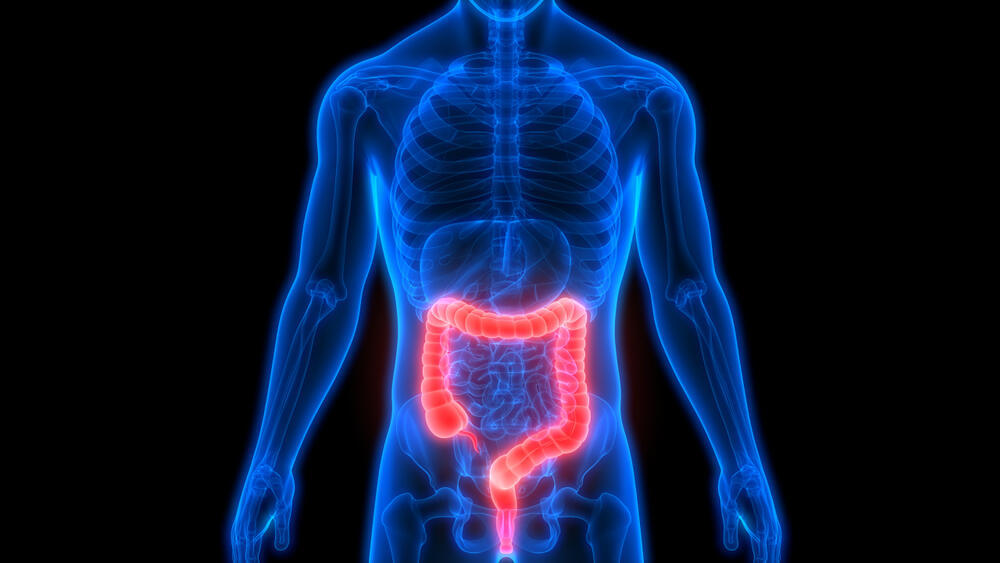Colorectal cancer is one of the most common malignancies in Israel, and data shows increasingly younger people are diagnosed with the disease worldwide, likely as the result of obesity and lack of physical activity.
More stories:
The recommended age for colonoscopy screening has already been lowered from 50 to 45 in the United States, and in Israel, health officials are also considering a similar move. A new study now identifies early signs of the disease, many of which are not typically associated with cancer by physicians.
New data revealed that in the U.S., the number of cases has doubled between 1995 and 2019, among patients under the age of 55. In Israel, more and more cases of colorectal cancer are being discovered among young adults, although according to experts, the rate of diagnosis among young people in Israel is still not as high as in the United States.
Recently, researchers from the School of Medicine at Washington University in St. Louis sought to examine the early symptoms of colorectal cancer among patients diagnosed at a young age. In a new study published in the journal of the American National Cancer Institute, a total of 5,075 people diagnosed with colorectal cancer under the age of 50 were included. The study identified four clear symptoms that patients had reported up to two years before the cancer diagnosis.
These symptoms included:
- Abdominal pain
- Rectal bleeding
- Persistent diarrhea
- Iron-deficiency anemia
"Many physicians disregard these symptoms in patients," said one of the study's authors, Professor Yin Cao from the Public Health Sciences Division at Washington University. "In our research, we aim to send a clear message to physicians and patients that everyone should be aware of these symptoms, and if they persist for more than a week without any clear reason, they warrant further medical evaluation."
Patients in Israel have also shown the same symptoms, often associated with benign conditions. "The numbers in Israel of young people with colorectal cancer are not as high as in the United States, but we do see an increasing number of patients, even as young as 40 or younger," Prof. Revital Kariv, a gastroenterology specialist from Tel Aviv Sourasky Medical Center, said in an interview with Ynet.
"Many doctors associate diarrhea with infectious diseases and rectal bleeding with hemorrhoids, rather than linking them to colorectal cancer, especially when dealing with young patients," Prof. Kariv said. "However, when these symptoms persist for an extended period of several weeks, with or without abdominal pain, and when there is a downward trend in hemoglobin levels, even if they are still within the normal range, it is necessary to refer to a gastroenterology specialist even if the waiting time is long."
Kariv said GPs can consult with specialists and receive initial guidance on how to investigate the conditions further. "Colorectal cancer is a serious disease, and if treatment is not administered in a timely manner, the condition can deteriorate and pose a threat to life," she said.
1300 deaths per year
Colorectal cancer is one of the most common types of cancer, following breast cancer in women and lung and prostate cancer in men ranking second or third leading cause of cancer-related death in most population groups in Israel.
Data published by the Health Ministry in 2022, showed an increase in the number of cases of colorectal cancer among people aged 20-44. However, invasive colorectal cancer is primarily a disease that affects older adults. The frequency of the disease rises significantly among patients over 50 and even more so over the age of 75. Studies suggest that the global increase in colorectal cancer cases among younger people is likely associated with obesity and lack of physical activity.
In Israel, around 3,200 men and women are diagnosed with colorectal cancer each year (approximately 260 per month), and there are about 1,300 deaths from the disease annually. Worldwide, it is projected that there will be 3.2 million new cases of colorectal cancer per year until 2040.
Colonoscopy: The life-saving initial diagnosis
Most patients do not experience symptoms in the early stages of colorectal cancer. A significant number of cases are diagnosed after a fecal occult blood test is performed through the HMOs. In certain cases, the following signs may appear, requiring a visit to a doctor: fresh blood in the stool, changes in bowel habits (especially in people over 50) that persist for several weeks (prolonged diarrhea, constipation, or alternating diarrhea and constipation), abdominal pain lasting for several weeks in the lower abdomen, unexplained weakness or anemia, and unexplained weight loss.
As part of the early diagnosis protocol, HMOs perform a fecal occult blood test for all patients over the age of 50. If the test shows a positive result, indicating the presence of occult blood in the stool, or if there is suspicion based on persistent symptoms mentioned above, a blood test to detect anemia is performed, and a referral is made to a gastroenterology specialist who may decide to refer the patient for a colonoscopy. If colorectal cancer is diagnosed, additional tests such as CT scans are performed to determine the stage of the disease. In cases with a family history of colorectal cancer, patients are referred by the gastroenterologist for earlier screening tests.
For most patients with colorectal cancer, surgery involving the removal of the section of the colon containing the cancerous growth is performed, leading to complete recovery in most cases. In the case of rectal cancer, radiation therapy may be performed initially to shrink the tumor, and surgery is then performed as needed.



